An important Elder dies almost every day, somewhere in Indian country. When they die, important information on tribal history, tribal traditions, family history, language, songs, stories, etc., die with them. Therefore, it is so very important that we take the time to sit with Elders and preserve information for the benefit of future generations.
As one who has had some experience talking with many different tribal Elders and holy persons about a variety of topics for over 30 years now, I would like to offer the following methods that have worked for me in some situations when a video camera or a tape recorder is not welcome, at least not initially. Remember, a lot of Elders are still kind of shy about the whole ‘anthropologist style' interview thing, and may not want to participate right off.
1. If I do not know the Elder I want to talk with, I usually find a friend or relation that can introduce me to the Elder. Someone they already know and trust. I chat with them and become friends with them. In many tribal traditionsc it is considered impolite to start asking questions right off the bat. So I might suggest that I come to visit with them at their home at another time, and share a cup of coffee. If the Elder agrees, I usually try and set a day and time before we part company.
2. When I come to the Elder's home, it shows a level of sincerity and commitment on my part and helps put the Elder at ease in their own surroundings. When I arrive, I will make sure to bring a bag of groceries. One bag is enough. More than one could be taken as an insult, implying that you think they are poor or needy. One bag of groceries however usually is taken as a sign of respect and generosity. You are showing your willingness to help out. The groceries I usually pick out are basics like flour, sugar, coffee, fresh fruit, potatoes, canned vegetables, that sort of thing. I usually give the bag of groceries to the woman of the house, if there is one. I may just set it down on the kitchen counter saying, “I brought this just to help out in a small way.” I try not to make a big deal of it, because I’m not looking for thanks or recognition, as humility is another important cultural trait to remember, especially with Elders.
3. Because many of the tribal Elders I talk with are “traditional”, I also make sure to bring some tobacco with me. Even if the Elder does not smoke, I give him or her a pack of non-filter cigarettes, or a small bag of plain, loose tobacco. If the Elder does not smoke, they may have an occasion to give tobacco to someone else. If the Elder follows a traditional spiritual practice common in the Northern and Southern Plains especially, they will know the subtle significance of the tobacco gift. You have come to ask them something.
4. I then usually follow the lead of my Elder host. Usually, a cup of coffee is offered, and I visit for a short time of 15 to 20 minutes or so. Chit-chatting about the weather, people we may know in common, where I come from and what I do, or maybe talk about community happenings, etc. Usually, the Elder may then say something like, “So what's on your mind?” or “What brings you here?” or “So, what did you want to know?” and something like that. I usually wait for the Elder to announce in some way that they feel comfortable talking about serious matters now.
5. If the Elder does not give me a subtle sign that they are ready to talk about some serious topics, I may find an appropriate pause to say something like, “You know, I’ve often wondered about….”, or “The other day I was talking with ‘so-and-so' about ‘this-and-that' and I started into thinking about….” This might open things up for the Elder to begin talking about a particular topic that he or she now knows you are interested in.
6. Many times I have found that Elders feel it is impolite to ask them questions directly, like “What do you know about…”, or “Tell me about….”, or “I’ve heard you know a lot about….” Elders are often put on the defensive by such questions, and may not respond because of it. Frequently, they want me to understand that they know very little about a subject (although in reality, they may know quite a bit). The Elder usually tries to remain the humble keeper of knowledge, not the “know-it-all expert.” To ask a direct question of an Elder also implies, in their mind, that they have the responsibility to tell me everything in the most perfect way. Something that they may not feel capable of doing.
7. When an Elder starts talking about a serious cultural topic I want to know about, I usually do more listening than anything else. I make mental notes of everything that is said so I can write down as much as possible on a notepad I keep in my truck, once I leave his or her home. If the Elder is giving a lot of information, more than I can remember, I might ask them if they mind if I get a notepad in my truck so that I can write some of the information down. Frequently, they admire my desire to accurately preserve the information at that point, and willingly pause long enough for me to get a pen and paper.
8. Once I have made the initial contact, and the first home visit or two, and become good friends with the Elder, depending on the Elder and the topic, I might suggest to them that I could record some of the information they have already told me so that future generations may benefit from the knowledge also. If they agree, then I set a day and a time and bring my recorder. I may also bring recordings for them to listen to, of interviews I have done with other Elders, so that they can see how it would come out. Many times old songs and their meanings are preserved in this way. I then would follow a format to identify the person, the date, the location, and the information being presented.
9. Most important, whenever I have made friends with an Elder and learned from them, maybe even made recordings of them, I always make a point to stay in touch. Make a friend and be a friend. It is an important thing to remember that the learning process can be an on-going process. Depending on the situation, the topic and the Elder, my initial inquiry can lead to many more learning opportunities and even referrals to other Elders as well.
Please keep in mind that of the many tribal Elders I’ve had the honor of talking with over the years, the majority have told me that they are willing to pass on cultural information, but few people ask them any questions, and even fewer ask the appropriate questions in a culturally acceptable manner.
I hope this helps.
Last Updated on August 14, 2016 by Paul G
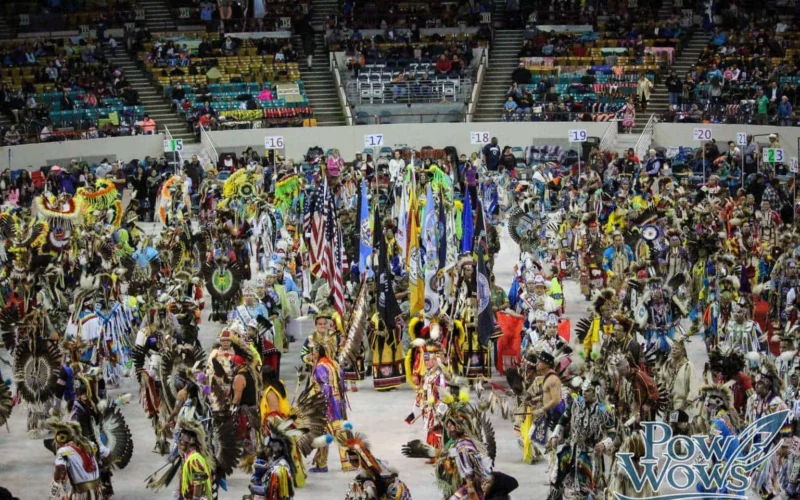
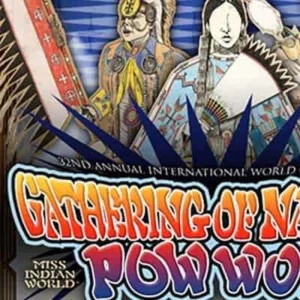
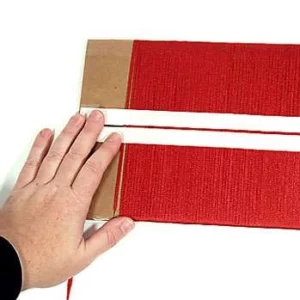
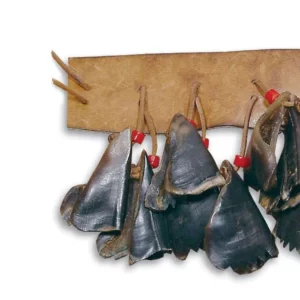
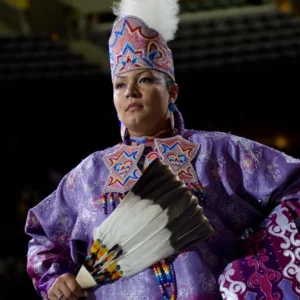
toby
says:hello. ive never really known much about native american anything but i saw something big the other night. is there anyone elders that would know of any such creatures?
"Jacub"
says:I am unsure of where to post this sort of “question”… But where would I ask an elder about spirits, specifically about sky and storms and “asking” for clouds to stop moving or have them grow? I know how this sounds… but I have only been relying on intuition for the past few years and found a system of ways to “ask”. Communing from childhood has come back in a BIG way…
ELLA ZELLARS
says:HI I’m Ella indigenus female from Ga.64 yrs. Of age as a young girl has always felt that something was missing from my life. Even when became a so called christian there always was this missing link.now being awaken to so much has been hidden knowledge I cannot really express after all these years. I cry, I rejoice I have great respect for my Elder’s. That’s one thing my parents real in all 11 of us. Want very much to be wit my people’s. I know now I belong to a indigenus Tribe.love my people’s.
Susan Sanders
says:My paternal great-grandmother lived on the Oregon Warm Springs Reservation. I understand my grandfather was born there. My father said we were part “Chinook, Calapooya, Paiute, and Nez Pearce.” I do not understand how we can be of so many tribes. I never asked this question prior to my father’s passing many years ago. Perhaps he meant we lived amongst so many tribes, which makes more sense to me since doing some academic research on my own and how we may be under the West Coast Salish umbrella of several tribes. But then I do not know which tribe my great-grandmother was from. My grandfathers name was Andrew Sanders. My father was Harold Sanders. I have yet to get to visit the Warm Springs Reservation. I look forward to the day I will.
Thank you!
David McDaniel
says:I AM VERY INTERESTED IN LEARNING MORE ABOUT MY OWN CULTURE. I HAVE BEEN TOLD I HAVE CHEROKEE ANCESTRY FROM MY FATHER AND UNCLE DON’T KNOW MUCH OF ANYTHING NEED HELP WITH INFORMATION MANY THANKS DAVE M
T Blu
says:Thank you Paul, for the heartfelt and thoughtful protocol for speaking with the Elders. You have shown great honor & respect!!
Paul G
says:Thanks, we appreciate your comments!
Skye
says:Hi my names skye I’m 24 years old, I am an indigenous female from Australia and would like to speak to someone about some matters. It would be greatly appreciated.thank you.
Ric Red Eagle
says:So many of our Native Youth have forgotten their heritage, forgotten our Native language and where we came from. I miss listening to my Grandmother and Great Grandmothers stories and teaching me the Native Ways of our people. Wish I had more time to learn from them. PROUD BLACKFOOT OF THE LONE FIGHTER CLAN
KAi Walker
says:I’m looking for very long time Someone who can help me to solve it.
My name is Karin, I’m 19 years old From Lithuania, was adopted as a baby and came to Israel when i was 2 month old.
Here the main problem,
I guess I was Christian, and when i was a little child my parents Jewry me.
I didn’t connected to it until today.
When i get older, (10 years old), I started to get angry on wild animals for not come to me.
then when i was 14, I understand the beauty of nature.
When i was 15, Wolves started surrender my life, And i become with the time one with them.
in my dreams, in my mind, I even had a big research.
In time I tried to be Christian, Asian, even for 4 days, like Jews.
My heart feel not belong, then i understand, and think about all the little steps
I did from then to now, and my spirit wandering into your culture.
From the day i found feather on the floor and i couldn’t go without save it without knowing why,
Till the day i understand That I need to know who am I within,
(i remember i heared once – Child that have grown enough, go to the forest 3 days, and come back after understanding how is him.)
I feel one with the music,ways of view, i feel that i can’t land my feet on safe ground
until someone help my mind to quiet peace:
I don’t have red skin, I Have blond hair, and blue eyes.
I read all the time that this thing doesn’t matter,
that what within it what count.
But I won’t be Quiet till i hear that i CAN be welcome whithin yours pepole,
I really glad if you answer me quick…
GREGORY G GOMEZ
says:Hi, glad to hear your voice in the moonlight. Please check out our Indigenous Institute of the Americas iiamericas org. We cover stories past, present and future activities from N Pole to S Pole. We also have Ambassadors and Advisors many from other countries. I am Lipan Apache on my Moms side and Mescalero Apache on my Dads side. I am at [email protected]. If you wish to communicate it will be an honor to walk with you in this time called life.
Always,
Gregory G Gomez MSSW
Lipan Mescalero Apache
President, IIA
ann teresa proffitt
says:I AM VERY INTERESTED AND WOULD BE VERY HAPPY TO KNOW MORE ABOUT NATIVE AMERICAN TRIBES THANK YOU
Paul G
says:Visit our Native American Information page!